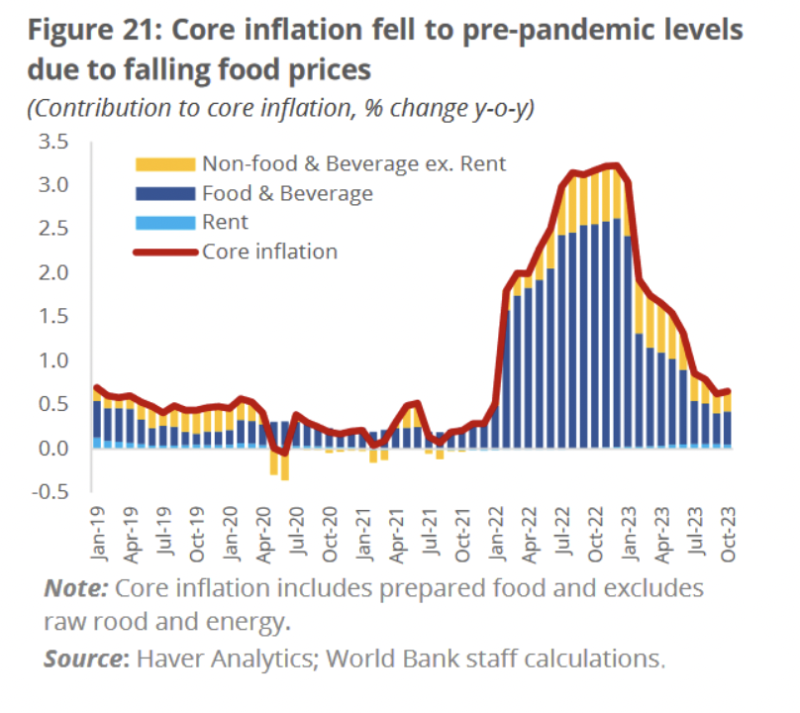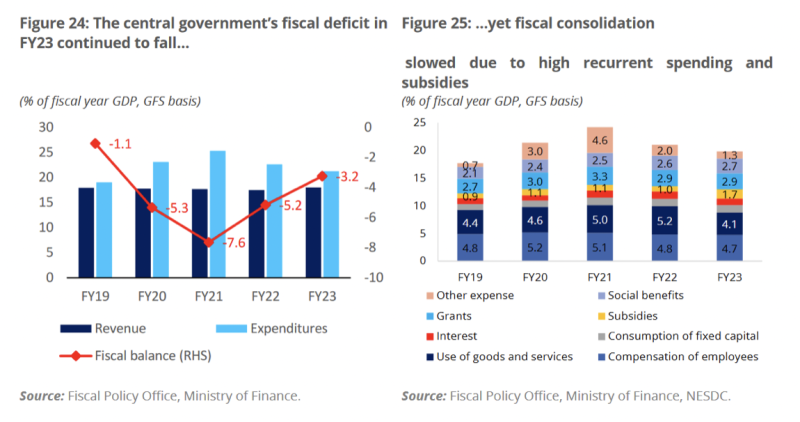Highlights on access to food:
Thailand's inflation rate continued to be the lowest among ASEAN peers and ranked behind only China among emerging markets due to the lagging recovery as well as energy subsidies and low food prices.
Core inflation (excluding energy and raw food) continued to wane, reaching 0.7 percent, reaching its pre-pandemic average of 0.7 percent over 2016-2019 (Figure 21). However, strengthening domestic consumption and a strong pick- up in producer prices since 2022 is expected to exert more pressure on core prices.

In FY23 (October 2022 - September 2023), the central government's fiscal deficit fell to 3.2 percent of GDP, a notable improvement from the 5.2 percent in the previous year (Figure 24). However, fiscal consolidation progressed slowly due to continued high recurrent spending and subsidies (Figure 25), as well as slow recovery in tax revenue.

| Year of publication | |
| Geographic coverage | Thailand |
| Originally published | 18 Dec 2023 |
| Related organisation(s) | World Bank |
| Knowledge service | Metadata | Global Food and Nutrition Security | Food security and food crises | Access to food |
| Digital Europa Thesaurus (DET) | economic analysisinflationlabour marketsocial protectionfiscal policy |
